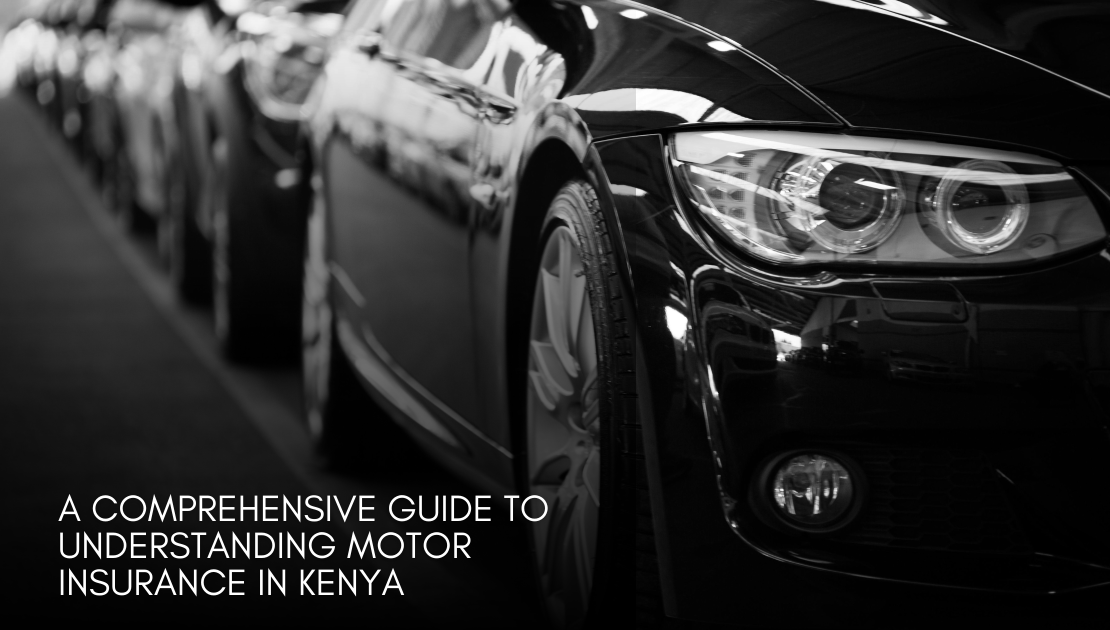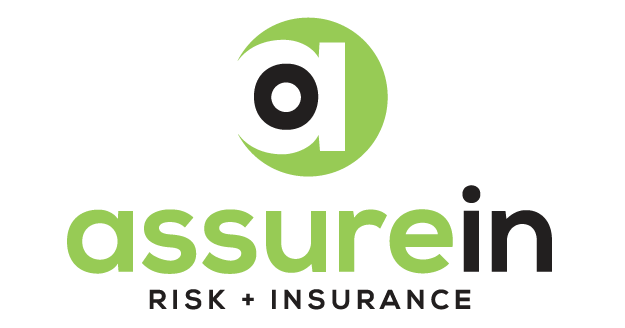
MOTOR VEHICLE INSURANCE IN KENYA: ALL THAT YOU NEED TO KNOW
- April 5, 2024
- assurein
- Insurance Knowledge
- No Comments
TABLE OF CONTENT
- Introduction to Motor Vehicle Insurance
- Types of Motor Vehicle Categories In Kenya
- Types of Motor Vehicle Insurance In Kenya
- Motor Vehicle Insurance Extensions In Kenya
- Buying Motor Vehicle Insurance In Kenya
- Factors That Influence Motor Vehicle Insurance Premium
- Frequently Asked Questions on Motor Insurance
- Conclusion
INTRODUCTION TO MOTOR VEHICLE INSURANCE
Motor Vehicle insurance, also known as motor or auto insurance, protects you and your vehicle against financial losses arising from the use of the motor vehicle by yourself or any other authorized driver. It covers damages to the car, theft, and third-party legal liabilities. Besides complying with the legal requirement, motor vehicle insurance keeps your prized possession safe and sound thus guaranteeing the peace of mind that any accidents or damage will be covered.
TYPES OF MOTOR VEHICLE CATEGORIES IN KENYA
Vehicles eligible for motor vehicle insurance in Kenya are classified into the following categories: –
- Private vehicles– These are vehicles that are owned privately and are for personal or private use only.
- Commercial vehicles– These are vehicles used for business purposes such as delivery trucks, work vans, and company cars.
- PSV Vehicles– These include online hailing app chauffeur-driven taxis, self-driven taxis, and ‘Matatus’ used for hire and reward.
- Motorcycles– Motorcycles used for social, domestic, or leisure purposes.
- Special Vehicles– These are vehicles used for special purposes like agricultural machinery, firefighting engines, and heavy road construction machinery.
TYPES OF MOTOR VEHICLE INSURANCE IN KENYA
Third-Party Only (TPO) Insurance – It’s the basic, minimum, mandatory motor insurance that motorists are required to have to operate on Kenyan roads. This policy compensates the policyholder against legal liabilities such as third-party bodily injuries, third-party property damage, and legal representation that may arise from an accident. The cover does not, however, protect the owner from physical harm or vehicle theft.
Third-Party Fire & Theft Insurance – This policy provides coverage to the insured against three risks; third-party risks including bodily injuries and/or property damage, accidental fire damage, and theft of the insured’s motor vehicle.
Comprehensive Insurance – Comprehensive Motor vehicle insurance is the most extensive coverage option and offers protection against losses and damages to both parties involved in an accident. It covers a wide range of risks including third-party legal liabilities, theft, fire, towing, windscreen, the entertainment system, riots, strikes & civil commotion, and special perils such as flooding.
MOTOR VEHICLE INSURANCE EXTENSIONS IN KENYA
The following additional benefits under Comprehensive Motor Vehicle Insurance are available at an additional premium: –
- Excess protector extension– Shields vehicle owner from paying excess during claims.
- Political Violence and Terrorism Extension.
- Loss of use– Alternative vehicle provided on a temporal basis to facilitate mobility while the vehicle undergoes repairs.
- Personal Accident extension– Offers coverage against permanent disability and/or death benefits following a Road Traffic Accident (RTA).
- Road Rescue– Provides roadside assistance in case of an accident or car breakdown.
- Windscreen and Window Glass extension.
- Vehicle entertainment unit
BUYING MOTOR VEHICLE INSURANCE IN KENYA
Buying motor vehicle insurance can be a complex and confusing process. You need someone who can break it down and make it as simple and hassle-free as possible. That’s why Assurein Insurance is here. We’ll ask the right questions, explain the nuances of optional coverages, and recommend coverage amounts appropriate for your particular level of risk so that you can enjoy your cars, safe in the knowledge that you are comprehensively insured. Before generating a quote and/or processing the cover for your vehicle, you will be required to submit the following KYC documents: –
- A copy of your national ID, passport, or certificate of incorporation for corporate entities. For non-Kenyans, a copy of a passport or Alien ID card is acceptable.
- KRA PIN Certificate for both individual and corporate customers.
- Copy of the logbook or importation documents (if the vehicle is newly acquired/registered locally). Where the logbook has not been processed, we shall process a one-month certificate pending the documents.
- Postal Address
- Email Address
- Telephone number
The following additional documents will also be needed to procure a cover once a client agrees to
- Fully completed and signed proposal form by the proposer.
- Full premium payment.
- Valuation at insurer’s cost.
- Mechanical assessment report where the vehicle is more than 15 years old.
FACTORS THAT INFLUENCE MOTOR VEHICLE INSURANCE PREMIUM
The key factors affecting the cost of motor vehicle insurance premiums in Kenya are: –
- Make and Model of Vehicle– High-end vehicle models tend to have higher premiums due to the high cost of repair or parts replacement, compared to less expensive vehicles.
- Vehicle Usage– The purpose of use of your vehicle can affect your insurance premiums. Commercial/ business vehicles usually have higher premiums than personal-use vehicles.
- Vehicle age and driving experience– Older vehicles tend to attract higher premiums. They are perceived to have a higher risk of mechanical failures and have less advanced safety features.
- Value of vehicle– Vehicles with bigger values usually have higher insurance premiums.
- Claim history– Frequent claims within a policy period can lead to higher premiums during renewals. Also, excessive claims might lead to cancellation of the policy
- Insurer’s claims experience– High claims experience by insurance companies from similar car models may result in higher premiums for that category.
- Add-On Coverage– Additional extensions such as personal accident, road rescue, and courtesy car will increase your premium amount.
- Policy terms– A one-year policy term will have a higher premium than a one-month policy term.
- Cover type– The type of coverage one chooses also affects their premium. Comprehensive covers offer extensive coverage and thus have higher premiums compared to a TPO which only protects the third party.
FREQUENTLY USED MOTOR VEHICLE INSURANCE TERMS
- Period of Insurance– The period shown in the schedule and any subsequent period for which you will pay, and we accept a renewal premium.
- Policy Year– The period between inception or renewal and the expiry date of an annual Policy.
- Valuation– Assessment of a vehicle to establish the market value of the vehicle.
- Excess– Out-of-pocket amount the car owner agrees to pay towards repairs before the insurer covers the remaining cost, in a claim.
- Excess protector– Optional additional extension that can be added to the comprehensive cover that covers the cost of the excess in the event of a claim.
- Endorsement– A change or addition made to the terms of your policy to modify your coverage.
- Claim– A request made by the insured to the insurer for compensation after involvement in an accident, theft, or damage according to the policy terms.
- Policy Document– A document issued by the insurance company that serves as a contract between the insurer and the insured. It outlines the terms and conditions, coverage, exclusions, and other policy details.
- TPO– Third Party Only cover that covers bodily injury and property damage to a third party.
- Courtesy Car– A replacement vehicle provided by the insurer for mobility while the insured’s car is being repaired.
- Road Rescue– Optional additional benefit that provides roadside assistance in case of a breakdown.
- Towing Service– Service that transports an inoperable vehicle to a repair shop or another location.
- Personal Accident– Optional additional cover that compensates the insured in the event of injury, disability, or death resulting from an accident.
- Loss of Use– Add-on coverage that compensates the insured for alternative transportation when their vehicle is involved in a covered claim.
FREQUENTLY ASKED QUESTIONS (FAQ) ON MOTOR INSURANCE
What kind of cars qualify for a comprehensive car? All vehicles not exceeding 15 years from date of manufacture. Vehicles above this period but less than 20 years from the date of manufacture will attract premium loading or higher premium rates. Vehicles below market or insurable value (sum insured) of 500,000/=
What determines the premium rate for any cover under Motor Insurance? Vehicle usage, make of the vehicle, scope of cover, loss history, age of the vehicle, cover extensions if any and the number of vehicles being insured.
Who should I call in case of an accident? Call your insurance intermediary using the available contact numbers or the insurer’s call centre.
What is policy excess? This is the first amount of claim the client is supposed to pay for a claim to be paid by the insurer. The amount is usually a percentage (%) of the vehicle sum insured.
What is excess protection cover? This cover relieves the customer from the burden of paying their damage excess for accidents arising out of a collision. It is important to note that the damage sustained on the vehicle and the cost of repairs must be above the policy excess amount. Claims falling below the primary excess are not recoverable.
Can I get a replacement car if mine is in the garage? Yes, if you have paid for the Loss of use/ courtesy car benefit you will be eligible for another vehicle for temporary use after 3 days of the accident, once the assessment confirms the car is repairable. If the vehicle is ruled out as uneconomical to repair and written off, this benefit will not be available.
Can I insure more than one car? Yes, customers who insure more than 3 vehicles under the same policy class get to enjoy fleet rates, which are considerably lower than individual vehicle rates.
What are some of the cover exclusions? Claims arising from intoxicating drinks and drugs, nuclear energy, war, invasion, acts of foreign enemy, hostilities, and allied perils, use within airports (beyond areas allowed to the public), theft by employees of the insured, passenger liability to insured’s household and damages within the policy excess.
What are some of the common motor insurance terms I need to know?
- Period of Insurance- The period shown in the schedule and any subsequent period for which you will pay and we accept a renewal premium.
- Policy Year- The period between inception or renewal and the expiry date of an annual Policy.
- Policy Document- Written evidence of the contract between you and us.
- Valuation- Process of establishing how much the vehicle is worth or the market value of the vehicle.
- Perils- Potential risks covered by the policy.
- Courtesy car- Vehicle provided for temporary use as yours undergoes repair.
CONCLUSION
In conclusion, motor vehicle insurance is a mandatory requirement under the Laws of Kenya under THE INSURANCE ACT, CAP 405, and serves as a crucial safety net for motorists, providing financial protection against unforeseen accidents and liabilities. Understanding the different types of coverage available and assessing individual needs is therefore paramount in securing adequate protection.
At Assurein Insurance, we try to make it as simple and hassle-free as possible. We’ll ask the right questions, explain the nuances of optional coverages, and recommend coverage amounts appropriate for your particular level of risk so that you can enjoy your cars, safe in the knowledge that you are comprehensively insured. Reach out to us today and one of our friendly staff will be at hand to help you get started.

